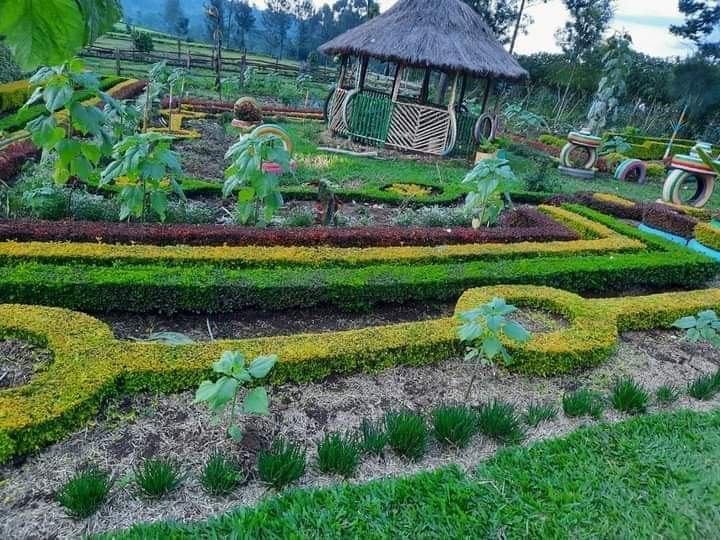Introduction to President William Ruto’s Current Position in Kenya
President William Samoei Ruto, the fifth President of the Republic of Kenya, currently finds himself at a pivotal juncture in the country’s political and socio-economic landscape. Since assuming office in September 2022, Ruto has steered the government through economic turbulence, global uncertainty, and intense domestic scrutiny. His Kenya Kwanza administration has put forth ambitious policies aimed at economic recovery, national unity, and a digital transformation of the public sector.
Economic Strategy: Hustler Fund and Bottom-Up Model
At the heart of President Ruto’s agenda is the Bottom-Up Economic Transformation Agenda (BETA), which is grounded in the belief that empowering micro-entrepreneurs and small businesses will create a sustainable economy. One of the flagship initiatives of this strategy is the Hustler Fund, a government-backed microcredit program designed to provide affordable loans to the informal sector and empower small business owners across Kenya.
The fund has disbursed billions to low-income earners, reflecting Ruto’s promise to uplift the “hustlers”—ordinary Kenyans striving to make ends meet. Despite criticism regarding its sustainability and repayment challenges, the Hustler Fund remains a cornerstone of Ruto’s grassroots-focused governance.
Inflation and Cost of Living: Public Pressure and Government Response
Kenya has experienced significant economic pressure in the wake of global inflation, supply chain disruptions, and drought. The cost of living has soared, and fuel prices, electricity tariffs, and the price of basic commodities have drawn nationwide criticism.
President Ruto’s administration has responded by cutting subsidies, arguing for a more sustainable fiscal model and shifting resources toward long-term investments like agriculture and renewable energy. The government is banking on domestic food production and digitized public services to reduce overheads and boost efficiency.
Taxation and the Finance Bill 2024: Unpacking the Controversy
The recently proposed Finance Bill 2024 has generated heated debate across Kenya. With proposed levies on digital content creation, motor vehicle circulation, and bread, the bill has been seen by many as a regressive tax regime.
President Ruto has defended the bill, stating that Kenya must expand its tax base to fund its development goals without overreliance on foreign debt. Nonetheless, civil society organizations, opposition leaders, and even some members of his own coalition have expressed concern over the burden placed on middle and lower-income Kenyans.
Foreign Relations and Diplomacy: Ruto’s Pan-African Vision
President Ruto has emerged as a prolific voice on the African continent, advocating for economic sovereignty, pan-African unity, and climate justice. He has called for the restructuring of international financial systems, arguing that Africa should have equal say in global institutions such as the IMF and World Bank.
Ruto’s bold speeches at global summits have earned him both praise and scrutiny. His proposal for a carbon tax on polluting countries and Africa’s green industrial revolution showcases his commitment to climate-focused diplomacy.
In regional affairs, Ruto continues to engage with East African Community (EAC) partners to boost trade and resolve security tensions, particularly in Sudan, Somalia, and the DRC.
Digital Transformation and E-Government Services
One of Ruto’s most significant achievements so far has been the digitization of over 5,000 government services through the eCitizen platform. This initiative is aimed at curbing corruption, reducing bureaucratic delays, and making public services more accessible to ordinary Kenyans.
By pushing for a cashless economy and integrated digital systems, the Ruto administration hopes to increase transparency and improve service delivery at both county and national levels.
Education, Youth Empowerment, and Technical Training
President Ruto has prioritized Technical and Vocational Education and Training (TVETs) to tackle Kenya’s growing youth unemployment. The government has increased funding for skills-based education, positioning TVETs as the engine for innovation, self-employment, and industrial growth.
Through initiatives like the Digital Superhighway, the administration seeks to equip young Kenyans with digital skills that align with the changing nature of work and global markets.
Security and National Unity: Combating Banditry and Political Division
The issue of banditry in Northern Kenya and rising crime rates in urban areas have tested the capacity of Kenya’s security forces. Ruto’s government has launched military-backed operations to restore order in troubled counties and increased investment in modern security infrastructure.
On the political front, Ruto has emphasized the need for national unity and inclusive governance, calling on opposition figures to participate in bipartisan talks. However, tensions remain high, especially with Azimio la Umoja, led by Raila Odinga, who continues to challenge Ruto’s legitimacy and economic policies.
Healthcare Reforms and Universal Health Coverage (UHC)
Ruto’s government has restructured Kenya’s Universal Health Coverage strategy, replacing the National Health Insurance Fund (NHIF) with the Social Health Insurance Fund (SHIF). This move is part of a broader overhaul to ensure that all citizens can access quality healthcare without incurring financial ruin.
The shift to preventive care, community health service expansion, and payment streamlining have been central to his administration’s healthcare vision.
Climate Action and Agriculture Revitalization
In the wake of climate change and food insecurity, President Ruto has heavily invested in agricultural subsidies, irrigation projects, and climate-smart farming. His administration has distributed fertilizer subsidies and trained farmers in regenerative agriculture, aiming to increase yields and reduce import dependency.
Kenya hosted the inaugural Africa Climate Summit in Nairobi, positioning itself as a continental leader on climate resilience and green energy transition.
Public Perception and Challenges Ahead
While President Ruto enjoys strong support in parts of the country, public opinion remains divided. The rising cost of living, joblessness, and aggressive tax proposals have triggered protests and online dissent. However, his bold reforms, pro-African diplomacy, and technocratic approach to governance have earned him international recognition.
As Kenya navigates a volatile global environment, the Ruto administration faces the challenge of balancing austerity with compassion, modernization with inclusion, and growth with equity.
